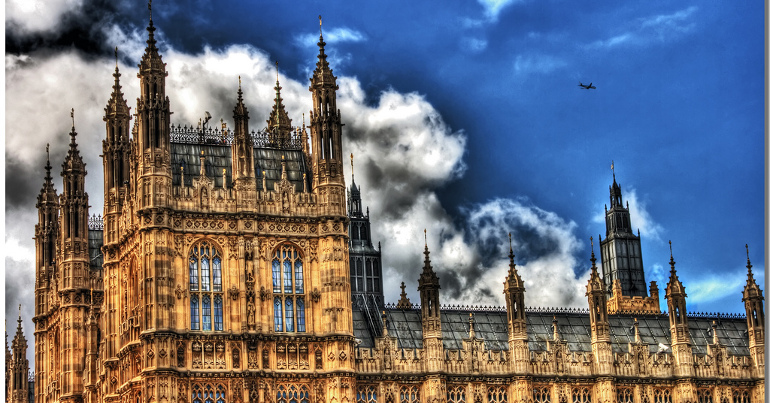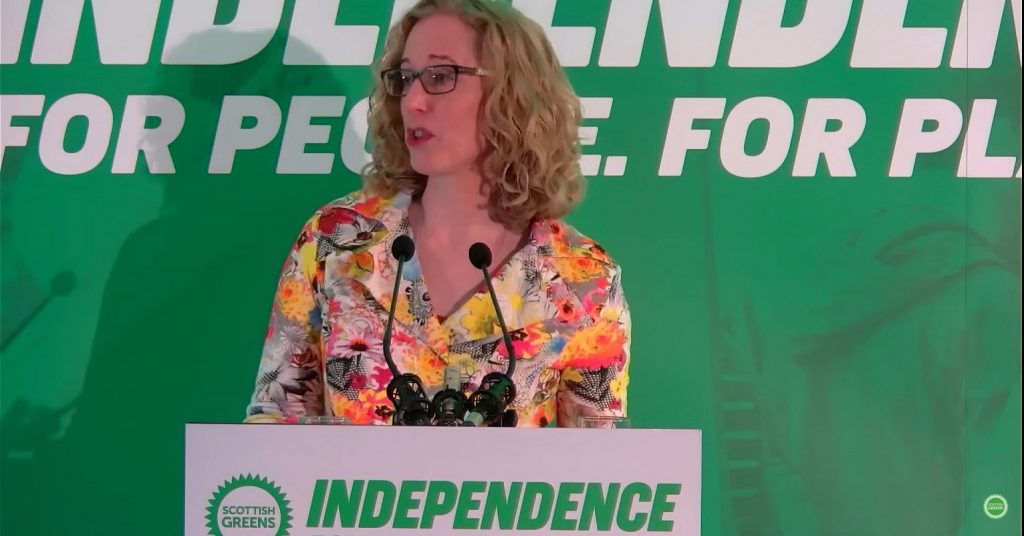What will happen with the EU Withdrawal Bill in the House of Lords?

Next week the House of Lords will be debating the EU Withdrawal Bill – what will become the law determining crucial events in the UK in 2020 and beyond.
Should your browser happen to land on the Parliament TV House of Lords channel, it is unlikely you’ll hear an impassioned speech addressing, say, the principle that young people shouldn’t have fewer freedoms and opportunities than their parents – certainly not from Tuesday to Thursday, when the committee stage, the detailed, line-by-line consideration of the Bill will be conducted.
Monday is the Second Reading, more general five-minute speeches that will see at least some taking a broader view.
But none of it will be easy or simple to understand – and a great deal more could and should be done to make it that.
My fellow Green peer, Jenny Jones, and I, will be doing our best to do that.
This Bill is the translation of the slogans of the December election – and the 2016 Brexit referendum – into actual hard law. Destructive, wide-ranging provisions undermine the foundations of our current rights in the UK. These include:
Removal of “parliamentary scrutiny”
One of the key slogans of the past three years has been “take back control”, but a briefing from the Bar Council pulls no punches in explaining how changes to this Bill since last October (when Boris Johnson, without a majority in the House of Commons was trying to squeeze the Bill through) take away any real power from parliament and put it in the hands of the Prime Minister.
The removal of parliamentary input into the negotiations for debating of the future relationship with the EU, the Bar Council says: “undermines parliamentary sovereignty …[that] requires more than a mere rubber-stamping of an international agreement”.
Parliament needs to be able to scrutinise, amend and approve the terms of the negotiating mandate, and regularly scrutinise and feedback on the progress of the talks – as a proposed clause put by Green MP Caroline Lucas in the Commons (but sadly defeated) would have done.
Non-regression on workers’ rights and environmental standards
Many people reading this will have fought for the standards of workers’ rights and environmental protections that we now enjoy under the EU umbrella.
“Non-regression” is a fancy way of saying “let’s not go backwards”. In practical terms let’s make sure we don’t allow meat produced in unhealthy, cruel, destructive conditions into the UK market, from, say, the United States, or the loss of limits on working hours, provision for maternity pay or job security, all things we’ve previously fought for and won.
Legal certainty
Clause 26 in the Bill is another on which the Bar Council is scathing. It suggests it could threaten the “continued functioning of the UK legal system”. Under the proposals of last year, only our highest court, the Supreme Court, could have departed from EU case law in the coming year, but the latest version presented by the government allows lower courts to do this also.
I’ve yet to hear any really clear explanation as to why the government wants to create such potential chaos, but we do know that the hedge funds and financial gamblers who funded the Tory victory are beneficiaries of chaos. Stability is not the way they make windfall profits.
These are three of the big picture issues we’ll be debating in the Lords – apparently abstract and not easy to explain, but crucial to all of our futures.
There’s also more clearcut, specific issues, that you’ll probably hear a great deal about in the coming days.
Unaccompanied children seeking asylum
This issue, covered in Clause 37 of the bill, is probably the one on which the government is most likely to be defeated in the Lords, destroying as it does a crucial route (Dublin III Regulation) by which unaccompanied refugee children are able to join family members in the UK from other EU countries.
This is another hard-fought humanitarian measure – won with the leadership of Kindertransport survivor Lord Dubs in 2016 – threatened by this Bill. More than 1,000 people, about 150 of them children, used this provision last year. Those children, it is often, truthfully, said, are some of the most vulnerable people on this planet – yet the government plans to abandon them.
If you have a Tory MP, they voted for this measure. Please let them know what you think about that.
Erasmus scheme threatened
Erasmus Plus in the programme by which more than half of the UK university students who study abroad do so, and by which many apprentices obtain workplace experience in another country in the EU.
In the Commons, a proposed Clause 10 backed by Green MP Caroline Lucas would have ensured its continuation. It was, however, sadly voted down.
The government says it does want to continue the programme “if it is in our interests to do so”. Hardly a ringing endorsement, and The Times has been briefed that the government is likely to stop it.
Rights of EU citizens in the UK (and UK citizens in the EU)
The House of Commons library has produced a comprehensive briefing on the issues affecting EU citizens. By its nature, it is non-partisan, but any EU citizen, or those who’ve concern about their fate – say anyone who wants to use the NHS, to which they are so important – will find many causes of concern.
One is the question of the real independence of the “Independent Monitoring Authority for Citizens’ Rights Agreements (IMA)”. There’s also the issue of what happens to people who haven’t applied for “settled status” by June 2021, set as the cut-off date, and what will happen to people here by right of relationship to an EU citizen.
What’s clear is that a cart and horses is being driven through the promise made by the Leave campaign in 2016, that the status of EU citizens would not change.
A December cliff edge
The Bill if passed as currently constituted, would make it a law that the “transition period”, while we’re not an EU member but are still broadly following its rules, must end on the 31st or December – the old hide-and-seek phrase of “ready or not” comes to mind.
There’s no reason for this except ideology and election campaigning – and it leaves open the risk, possibly even exposes the government’s desire for a crash-out at the end of this year. Far more chaos, confusion, fear and worry – and certain major economic impacts.
What will happen?
You will hear the phrase “we are the unelected House” many times, I can safely predict of the coming week, as members of the Lords seek to argue it should do nothing.
But of course, so too is the Commons – at least not elected by the majority of British voters. (Only 44% of those who cast their ballot chose Conservative. That was 31% of registered voters.)
The Lords has the responsibility to resist. As Greens, that’s what we do – and we’ll certainly be working very hard to maximise the resistance in the Lords to this disastrous Boris Johnson power grab.



Leave a Reply